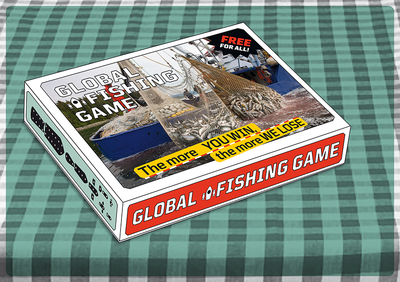Ethical Risk Assessment Fish
The global hunt for fish turned out to be a race to previously inaccessible stocks in the middle of the ocean, hundreds of metres below the surface of the water. By using the most up-to-date technology, industrial fishing boats locate their prey in remote regions. Giant fishing nets allow the crew to bring entire shoals on deck. The competition for the highly demanded resource is not always fair and parts of the complex set of rules and regulations are fragmented and not legally binding. As a result, tragedy takes its course: The nature of fish as a common good, the absence of a global regulatory authority, and the impossibility of efficient monitoring at sea leads to a disaster for fish stocks as well as for fisheries-dependent workers and their families.
The immense expansion of aquaculture allows global fish production to reach new all-time highs year after year while overfishing as one of the sector's central issues fuels a number of socio-economic risks. Artisanal local fishermen worry about the basis of their livelihood, food security is threatened in many poor fisheries-dependent regions, and migrants are forced to work on often illegally operating trawlers. International actors are intensifying their efforts to address these problems, but in a sector with a considerable need for cooperation, the willingness of relevant stakeholder groups to take collective action remains low.
The European Union is the world’s biggest import market for fish and fish products. What potential does the EU have to create a better fisheries sector? With new regulations aiming to make fisheries more sustainable, fight against illegal fishing, and strengthen the position of local fishermen in coastal states, initial steps have been taken. But, according to NGO’s, even the EU itself doesn’t strictly follow its own rules. Moreover, the tragedy of the commons and the challenge of how to create strong regulations and monitoring processes prevents all actors from coming to an agreement on how to preserve the resource, despite this being a common concern.
The socio-ethical risks are immense, but the debate about fisheries is still dominated by ecological issues. As a precondition for making the EU’s new policy instruments more effective, it is necessary to forge stronger connections between overfishing, working conditions, food security, and development aid policies.






